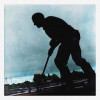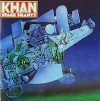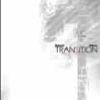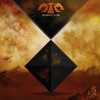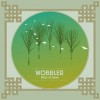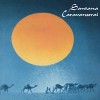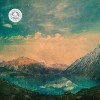MY BROTHER THE WIND is an improvisational cosmic rock collective consisting of members of widely known Swedish acts Makajodama, Magnolia, Animal Daydream and most notably Anekdoten, one of the more widely recognized names in the 1990s prog rock revival.Recorded live in the studio with no overdubs during a single day in January 2013, Once There Was A Time When Time And Space Were One captures the collective's progressive soundscape qualities with incredible analogue studio production. The band utilized 6 and 12 string acoustic and electric guitars, Mellotron, flute, bass, drums, congas and more to complete the task. Expect 45 minutes of the band's most succinct material to date, recorded deep in the snowy, forested, Swedish wilderness.In 2013, MBTW expanded into an even wider fanbase, having been invited to play the mighty Roadburn Festival in Tilburg, Holland, as well as at Duna Jam in Sardinia. At the invitation of Opeth’s Mikael Okerfeldt, guitarist Nicklas Barker returned to Roadburn to perform an improv set with Dungen guitarist Reine Fiske.Those who frequent the works of Popol Vuh, Amon Duul, Sun Ra, Träd, Gräs Och Stenar, Albert Ayler, Ash Ra Tempel, Gong, Pink Floyd and other visionary, psychedelic rock artists are advised to investigate this act. "Lush and instrumental for its duration, My Brother the Wind‘s third full-length, Once There was a Time When Time and Space were One (released by Free Electric Sound/Laser’s Edge), rolls out of the speakers much easier than its title rolls off the tongue, though both title and the work itself satisfy rhythmically. The Swedish four-piece — they now seem to be a bass-less trio with Nicklas Barker (Anekdoten) and Mathias Danielsson (Makajodama) on electric/acoustic 12-strong guitar and Daniel Fridlund Brandt on drums, but Ronny Eriksson plays bass on the album — reportedly recorded live to two-inch tape on a vintage machine, and the passion they put in bleeds readily into the nine-song/45-minute outing, fleshed with liberal splashes of Mellotron courtesy of Barker to play up a ’70s prog feel in a piece like the 12-minute “Garden of Delights.” That’s hardly the only point at which those sensibilities emerge, but even more than that, the primary vibe here is one of gorgeous heavy psych exploration, the band adventuring and feeling their way through the material as they go.On peaceful moments like the title-track, which arrives as the penultimate movement before “Epilogue” leads the way back to reality — accordingly, “Prologue” brings us in at the start — that exploration is positively serene, the 12-string complemented by spacious electric tones spreading out across vast reaches, but Once There was a Time When Time and Space were One offers more than drone and psychedelic experiments. Subtly pushed forward by Brandt‘s drums, pieces like “Into the Cosmic Halo” and even “Epilogue” enact classic space rock thrust, and even “Song of Innocence Part 1,” the first part of the journey after the backward atmospherics of “Prologue” introduce, has some cosmic feel amid its echoing solos. Its subsequent complement, “Song of Innocence Part 2,” swells to life on an even more active roll, waves of amp noise up front while drums and bass groove out behind, waiting for the guitars to catch up, which they do in a suitably glorious payoff, relatively brief but masterfully engaging, setting a momentum that continues well into “Garden of Delights,” a focal point for more than its length.Because the songs flow so well one to the next, some directly bleeding, others giving a brief pause, and because later cuts like “Thomas Mera Gartz” — named in honor of the drummer for ’70s Swedish proggers Träd, Gräs och Stenar — and the title-track have a quieter take, it’s tempting to read some narrative into the shifts of Once There was a Time When Time and Space were One, but with the material not being premeditated, I’m not sure that’s the intention so much as a signal it’s well arranged. In any case, the album offers an immersive, resonant listen, with tonal richness to spare and the presence of mind to keep a sense of motion even in its stillest parts and a balance of organic elements — Danielsson‘s recorder and Brandt‘s percussion on “Misty Mountainside,” the 12-string, etc. — amid a wash of effects and swirling psychedelia. This attention to sonic detail makes Once There was a Time When Time and Space were One more than just a collection of jams, and adds further purpose to the already worthy cause of My Brother the Wind‘s thoughtful musings, wandering and not at all lost." - The Obelisk
$13.00





